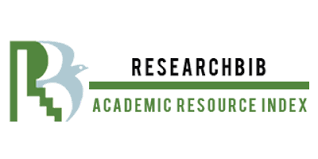| Back | Table of Contents | Full Text | PDF | Similar Articles | |
Bahriye Serin1, Derya Pekel1, Hasan İner2, Mustafa Gürbüz1, Şahin İşcan2, Nihan Yeşilkaya2, Necmettin Yakut3, Bortecin Eygi2, Yüksel Beşir2, Orhan Gökalp2
1Perfusion, Institute of Health Science, Izmir Katip Çelebi University, Faculty of Medicine, Izmir, Turkey
2Department of Cardiovascular Surgery, Izmir Katip Ãelebi University, Faculty of Medicine, Atatürk Training and Research Hospital, Izmir, Turkey
3Department of Cardiovascular Surgery, Izmir Akut Heart Hospital, Izmir, Turkey
Keywords: Acute kidney injury, cardiopulmonary bypass time, coronary artery bypass grafting
Objectives: In this study, we aimed to evaluate the effect of duration of cardiopulmonary bypass (CPB) on postoperative acute kidney injury (AKI) in patients who underwent coronary artery bypass grafting (CABG).
Patients and methods: A total of 251 patients (222 males, 29 females; mean age: 61±9.4 years; range, 37 to 88 years) who underwent elective CABG operation between January 2014 and January 2018 were retrospectively analyzed. The patients were divided into three groups by considering the duration of CPB as 0 to 60 min (Group 1), 60 to 120 min (Group 2), and â¥120 min (Group 3). Preoperative, operative, and postoperative data and renal functions of the patients were evaluated using the Acute Kidney Injury Network (AKIN) criteria.
Results: In all three groups, a statistically significant decrease in hemoglobin and estimated glomerular filtration rate (eGFR) values and a statistically significant increase in blood urea nitrogen (BUN) and creatinine values were found (p<0.05). In Group 2 and Group 3, postoperative BUN and creatinine value were significantly higher and eGFR value was significantly lower than Group 1 (p<0.05). In terms of postoperative data, the rate of acute renal failure (ARF) requiring dialysis was significantly higher in Group 2 and Group 3 than Group 1 (p<0.05). The postoperative mortality rate was significantly higher in Group 3 than Group 1 (p<0.05).
Conclusion: In terms of postoperative mortality and morbidity, it is important to identify the risk factors for AKI and to take
appropriate precautions for the risk factors. Minimizing perfusion time in patients undergoing CPB may help to decrease the incidence
of CPB-induced AKI.
| Back | Table of Contents | Full Text | PDF | Similar Articles | |





















